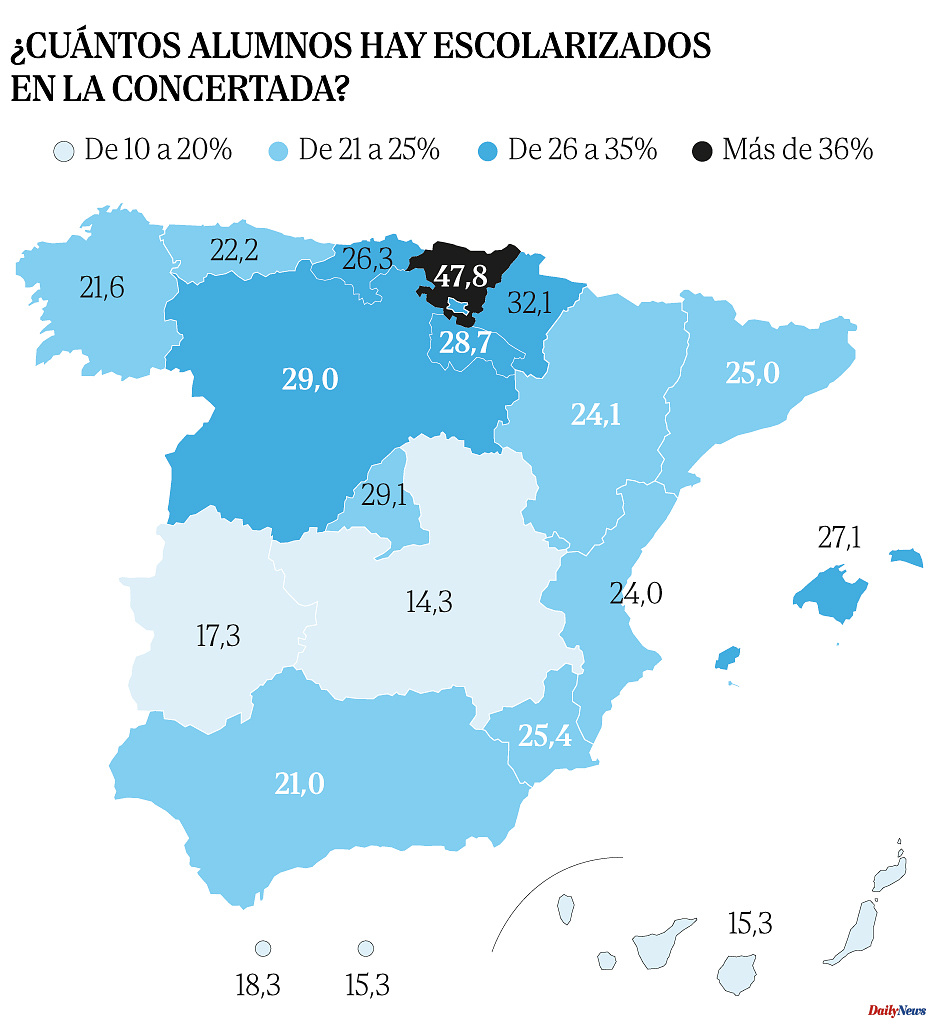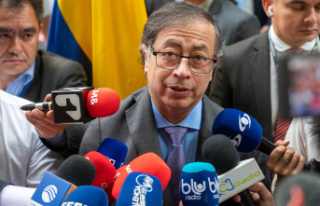The Government has created a working group with the concerted school to begin negotiating a change in its financing model. The Ministry of Pilar Alegría thus takes the first steps to address an issue that everyone says "must be resolved" but no administration has decided despite the fact that the sector has been demanding it for decades and it is an obligation imposed by law since 2006.
The LOE provides for the constitution, within the Education Sector Conference, of a commission made up of business and union organizations for «the study of the amount of the concert modules that assess the total cost of teaching free of charge ». This group must calculate what the school post is worth and check if, as denounced by subsidized schools, the public funds they receive do not reach to cover all expenses.
In 2010, the then minister Ángel Gabilondo (PSOE) set up a commission to address the financing of the concerted organization and several meetings were held of which minutes were drawn up. There was a prior agreement on the concepts that should be valued to calculate the cost, but the work was left halfway.
Now the Ministry has summoned the employers Escuelas Católicas, Cece and Fundaciò Escola Cristiana de Catalunya and unions such as CCOO, UGT, FSIE and USO to activate the so-called "Working Group of the Concerted Table" and has asked them to designate a representative to start negotiations. For the first time in 13 years, the concerted hot potato will be addressed, the last of the thorny issues of the Celaá Law, which until now had been postponed.
There is no date yet set for the meetings, which Ministry sources frame within the "fluid dialogue" that Alegría "maintains" with "all" members of the educational community. These sources specify that "before the elections a solution will not be reached in economic aspects, but the table will be able to start and they will meet to lay the foundations."
In the Government they are aware that a negotiation of this magnitude cannot be carried out on the eve of 28-M and a few months before the general elections - "The best moment is at the beginning of a legislature" - but they also believe that, if they repeat in La Moncloa , «it can be used to have advanced work».
Escuelas Católicas has a proposal ready to raise the item for operating expenses of the concert module in the General State Budget Law over four years at a rate of 30% each year, "without prejudice to updates due to inflation ». This year the state increase has been 2.5% per year, although the Autonomous Communities are becoming more sensitive and are increasing funds, such as Catalonia (41% more) or Madrid (15%).
What the concerted fears is that the Government will improve their financing but, in exchange, will force them to admit more vulnerable students, as in Catalonia and the Basque Country. The Celaá Law for the first time urges the CCAAs to distribute the students among subsidized schools based on “socioeconomic reasons”. In fact, Congress approved last Thursday a non-legal proposal of the PSOE, with the support of Podemos and Ciudadanos, to "guarantee adequate and balanced schooling for students with a specific need for educational support in each of the public and private centers concerted".
The text orders the Government to create a commission to set a maximum number of socioeconomically disadvantaged students per center, as well as criteria to identify the social vulnerability of schools.
These types of measures have already been established with controversy in the Basque Country and Catalonia, as the Basque Government decides if a student is "vulnerable" with a questionnaire in which the family is asked if they have Netflix at home. The concerted one is not opposed to schooling more immigrant students or those with support needs, but questions that these students are "imposed" "even against the will of their parents."
In the Ministry they insist that in the new group of the concerted one "there will be no maximalist approaches and the idea is that proposals are made and progress on issues that do not generate controversy."
According to the criteria of The Trust Project












